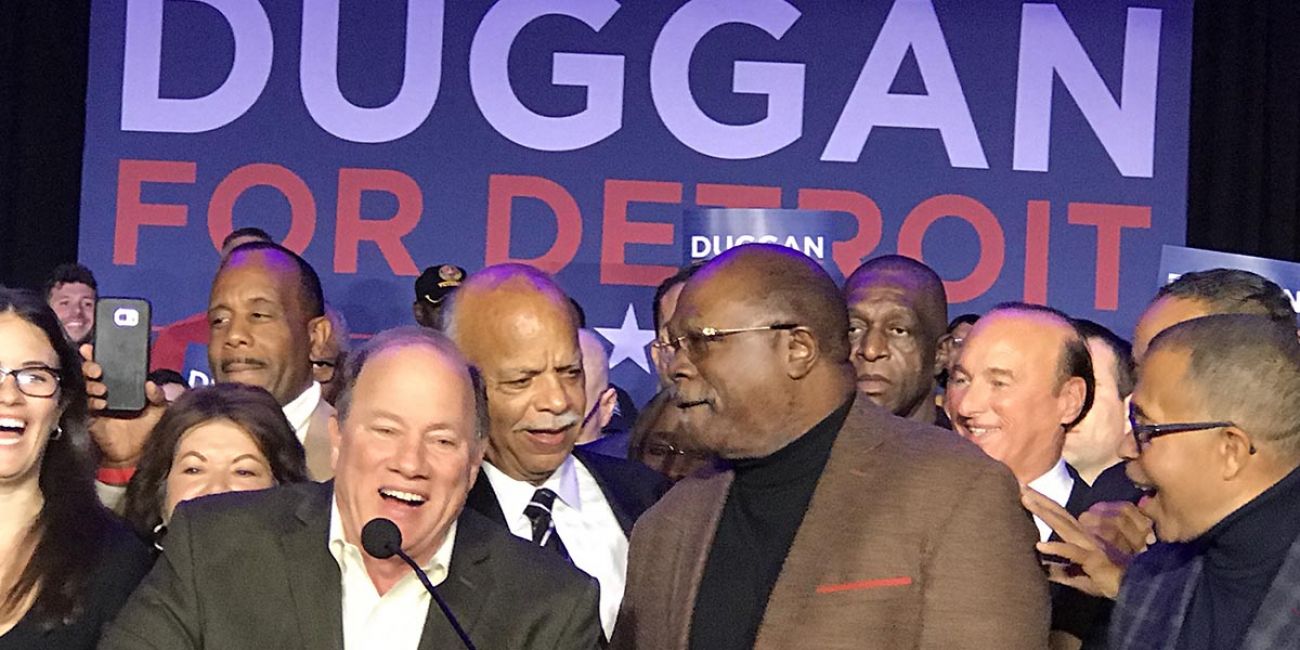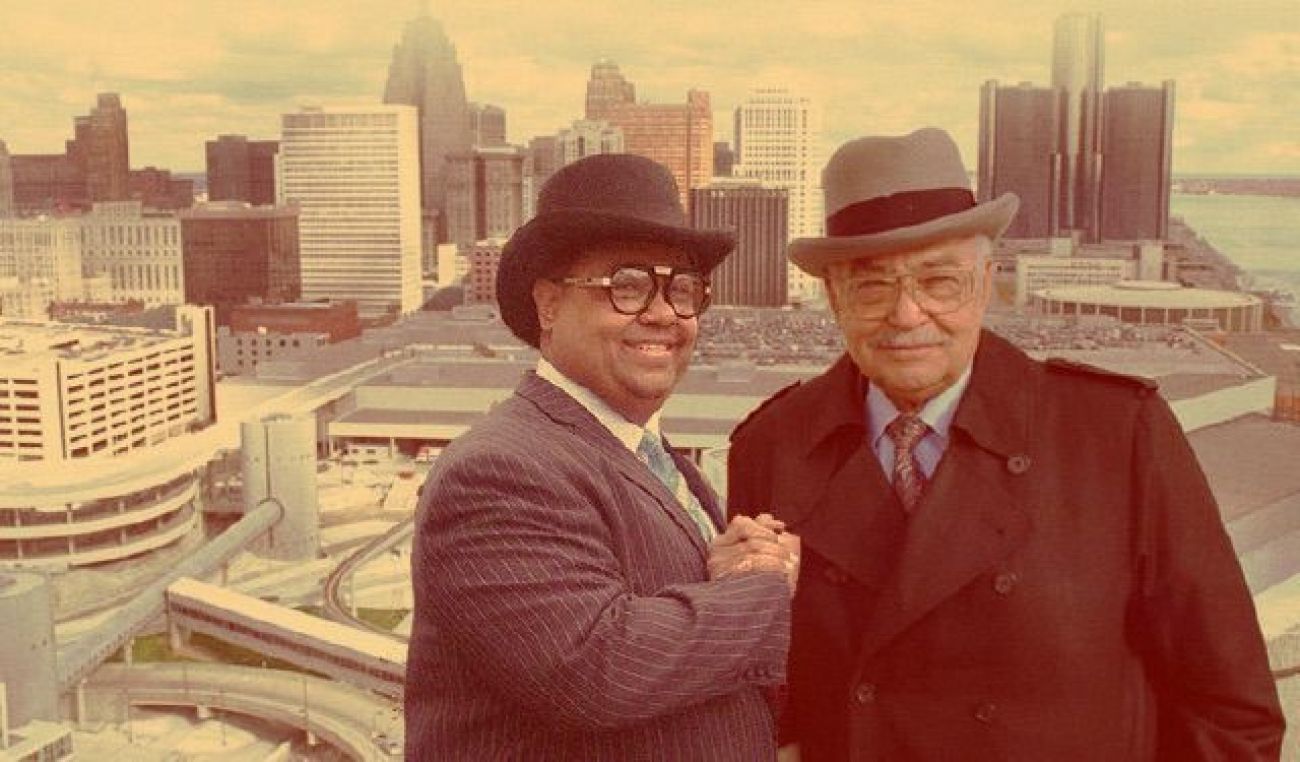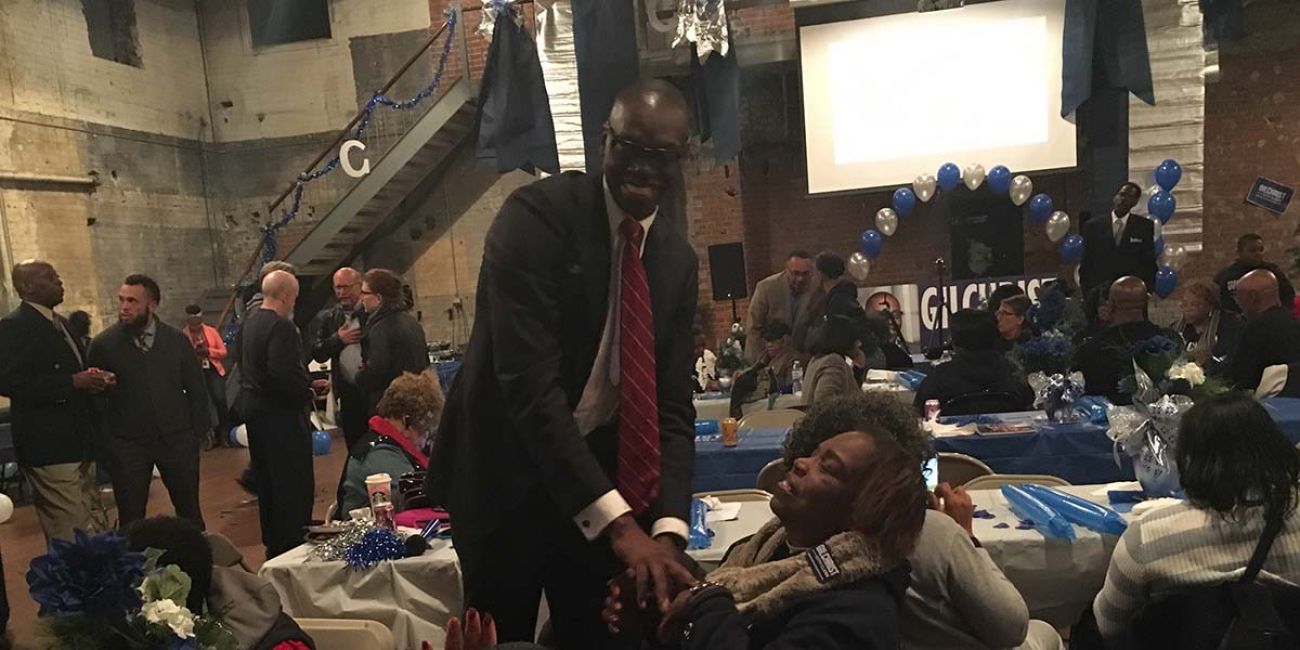Detroit Mayor Mike Duggan wins big. Does he have a mandate?

Detroit Mayor Mike Duggan won by a landslide, as expected. So did Flint Mayor Karen Weaver, providing fresh ammunition to the old adage about the advantages of incumbency.
Duggan thumped state Sen. Coleman A. Young II, the son of the city’s first African-American mayor, carrying 72 percent of the vote during balloting Tuesday. Weaver, who has faced criticism of her handling of the city’s water crisis and a trash hauling contract, easily bested 17 other candidates, allowing her to serve the final two years of her four-year term.
“(Voters) have short-term memory and opponents have to have a lot of money to beat them,” said Darci McConnell, president and CEO of McConnell Communications, Inc., a Detroit-based firm that often works on political campaigns but isn’t involved in this year’s elections.
“It’s the power of incumbency.”
Throughout Michigan, voters in 75 counties elected officials and decided ballot questions ranging from school improvements to medical marijuana.
Here are five takeaways on Wednesday morning:

Takeaway One: Big win. What does it mean?
Detroit’s mayoral election always was a mismatch. Duggan raised nearly 50 times as much as Young, pulling in more than $2.5 million to the state senator’s $52,780.
Young ran largely on his father’s legacy and claims that Detroit’s comeback neglected large swaths of the city. The message never resonated. Duggan expanded his margin of victory from the primary, when he won 68 percent of the vote.
“Seventy-five percent of Detroiters think the city is going in the right direction,” Duggan told reporters Tuesday night after his campaign party downtown.
How resounding was the victory? Duggan carried 587 of the city's 590 precincts, including all 100 absentee precincts, according to a Bridge Magazine analysis of vote counts released Wednesday afternoon. Duggan won 76 precincts with at least 80 percent of the vote, trouncing Young by a 5-1 margin in those precincts.
And while Young may have won three precincts, the total margin between them was only five votes. He tied Duggan in two other precincts.
But some question whether victory, however impressive, will give Duggan more of a mandate to push his agenda. The election win came just days after Duggan suffered a political defeat in Lansing, when he couldn’t rally Detroit representatives to support his plan to reform auto insurance rates that among the highest in the nation.
McConnell said voter turnout (about 21 percent) “puts an asterisk” by the victory.
Former Detroit City Councilwoman Sheila Cockrel, director of Citizen Detroit, an organization that educates residents about the voting process, said both voters and non-voters sent a message.
“People who don’t vote believe that it doesn’t matter who’s in charge, it doesn’t matter to their lives,” she said. “It’s self-defeating, but understandable.”
Turnout topped predictions of 13-18 percent. Some attributed the lack of interest to satisfaction with the city, while other pointed to the caliber of the competition. Young mentioned his father throughout the campaign and, in the last few days, dressed like him and circulated a doctored picture on social media of the two shaking hands.
“He’s a political novice. He’s a character,” said Mario Morrow, president and CEO of Mario Morrow and Associates, a public relations firm in Detroit.
Takeaway Two: Name recognition is everything
In the closest Detroit race, incumbent Clerk Janice Winfrey edged computer engineer Garlin Gilchrist by less than 2,000 votes, according to unofficial results. Gilchrist had seemingly every advantage over Winfrey, the clerk since 2005.

Gilchrist raised $160,506 compared to Winfrey’s $25,000. She was battered by scandal, after voting irregularities in Detroit last year would have prevented a statewide recount of last year’s presidential campaign.
Gilchrist, who worked for Moveon.org and is the city’s former director of new and emerging technology, received far more endorsements and was praised by Detroit Free Press columnist Stephen Henderson as the embodiment of a “new Detroit” type of sophisticated political leaders.
It didn’t matter. For much of Tuesday night, he was comfortably in the lead, but Winfrey edged ahead by 10 p.m., thanks to overwhelming support from absentee voters who are typically older.
Morrow and McConnell said that Winfrey took a page out of the campaign playbooks of past clerks and didn’t spend much money campaigning. Instead, her office bought radio ads and billboards - featuring Winfrey’s voice and face - to talk about the new voting machines and to encourage people to vote.
“That raised a lot of eyebrows,” Morrow said. “I bet this may be last election anyone is going to be able to use that mechanism or abuse of public funding.”
Gilchrist had a sophisticated campaign that employed micro-targeting of voters and social media, but Winfrey’s old school campaign prevailed, said Steve Hood, a Detroit-based political consultant.
“When voters were informed by (Gilchrist’s) media campaign, they voted against Winfrey,” Hood said. “ The only thing that helped her is he started his media campaign too late.”
But early Wednesday morning, Gilchrist had not conceded and his campaign was pouring over results and saying they found irregularities with absentee ballots, and mulling their next step.
Takeaway Three: Name recognition isn’t everything
All of Detroit’s incumbent council members were re-elected, but in one surprise, former state Sen. Virgil Smith was trounced, 59-39 percent, in his bid for District 2 against Roy McCalister, who used to head the Detroit Police Department’s homicide division.
Smith resigned from the Senate last year and served more than eight months in jail for malicious destruction of property for shooting at his ex-wife’s car. He was placed on a five-year probation.
The race was well-watched because the seat is currently held by City Council President Pro-Tem George Cushingberry. He lost in the primary but ran as a write-in, receiving less than 500 votes.
“A McCalister win means not enough voters forgave Virgil. And it helps to run again and again to get some name recognition,” McConnell said.
Takeaway Four: Marijuana is here to stay
The medical marijuana advocates behind the two ballot questions knew they were up against a tough opponent in the churches that rallied against them. But Tuesday’s vote puts the city on the path to not only have more marijuana shops, but also a chance to make money off of it.
One ballot question asked Detroit voters on Tuesday if the city should opt into the state’s new licensing law that would allow five new kinds of marijuana businesses from grow operations to dispensaries to open in the city. The change will allow the city to split a 3 percent tax on marijuana products with the county. Sixty percent of voters approved the measure.
Current city ordinance keeps the businesses 1,000 feet away from other marijuana shops and 1,000 feet away from any of the city’s 4,000 church-owned parcels, limiting the number of legal marijuana locations to about 50.
The second question on Tuesday’s Detroit ballot dealt with zoning, asking voters to allow medical marijuana businesses to locate within 500 feet of a church or another marijuana business. It was approved by 58 percent of voters.
Hood hadn’t expect the zoning question to pass but had expected the licensing ballot question to pass.
“Detroit wants the money,” he said.
Takeaway Five: Exception to the power of incumbency
Incumbent mayors haven’t won re-election in Jackson in more than a decade, according to local news reports. And the trend continued Tuesday when Mayor Bill Jors lost his job to City Councilman Derek Dobies, who represented the sixth ward.
While Dobies was running for mayor, he also was the subject of a recall, which he did not fight to focus on the mayor's race.
A group collected signatures to recall Dobies after a tweet last February related to a petition that sought to stop the city from consideration of a non-discrimination ordinance to protect LGBT rights. The ordinance was part of a decades long struggle to prohibit discrimination based on sexual orientation and gender identity in employment, housing and public accommodations in Jackson, according to the Jackson News.
Dobies had tweeted, “Ppl signing NDO repeal petitions should know that their names + addresses will be publicly available under #foia. Watch what u sign!”
Dobies won 55 percent of the votes, or 2,259 votes, to unseat the incumbent and become Jackson’s next mayor.
See what new members are saying about why they donated to Bridge Michigan:
- “In order for this information to be accurate and unbiased it must be underwritten by its readers, not by special interests.” - Larry S.
- “Not many other media sources report on the topics Bridge does.” - Susan B.
- “Your journalism is outstanding and rare these days.” - Mark S.
If you want to ensure the future of nonpartisan, nonprofit Michigan journalism, please become a member today. You, too, will be asked why you donated and maybe we'll feature your quote next time!

